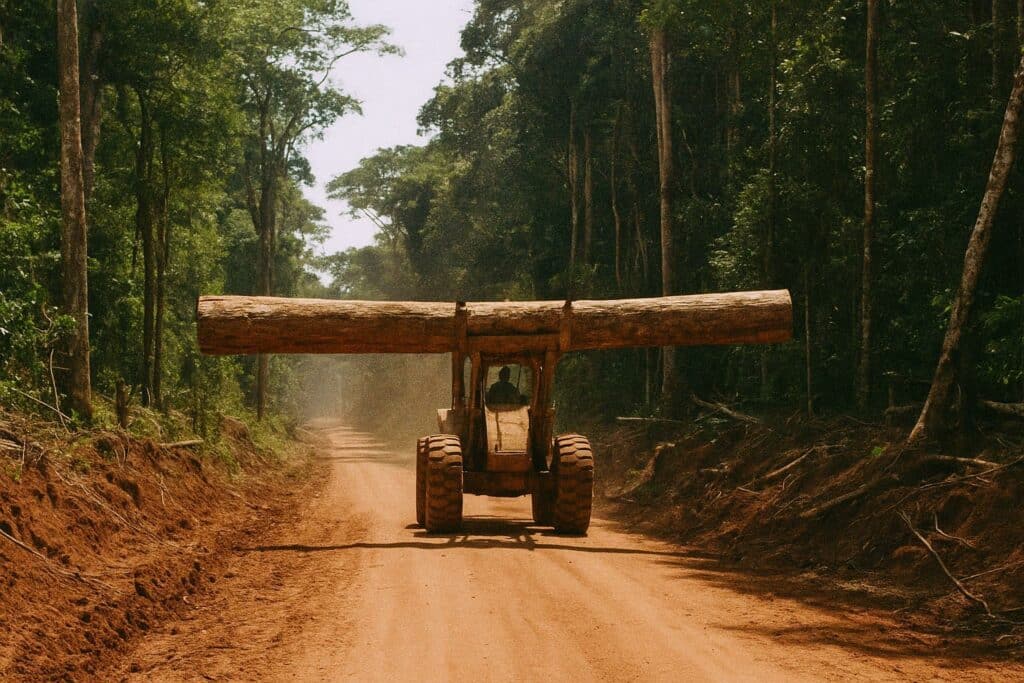Strategic Patience amid Post-Pandemic Recovery
The Republic of Congo entered the post-pandemic period with a contraction softened by the International Monetary Fund’s emergency credit line of 2021, followed by a three-year Extended Credit Facility agreed in January 2024. Finance Minister Rigobert Roger Andely framed the arrangement as “a bridge between resilience and reform,” emphasising gradual fiscal consolidation rather than abrupt austerity. The latest IMF Article IV consultation projects real GDP growth inching above 4 percent in 2025, a pace respectable in Central Africa but sufficiently moderate to avoid overheating pressures.
Public debt, which reached nearly 90 percent of GDP in 2020, has been edging down thanks to a negotiated rescheduling with Beijing-based creditors and higher-than-expected oil receipts. Analysts at NKC African Economics note that Brazzaville’s willingness to publish previously opaque debt clauses has nurtured cautious confidence in Paris Club circles, even if rating agencies retain a speculative grade. For diplomats, the incremental transparency signals both a response to creditors’ conditionality and a bid to reclaim agency in future borrowing.
Oil Revenues as Catalyst, not Crutch
Hydrocarbons still account for roughly half of GDP and more than three-quarters of export earnings, according to the African Development Bank’s 2025 outlook. Yet official discourse now stresses transforming oil wealth into broader value chains. The Pointe-Noire Special Economic Zone, inaugurated in late 2023 with Emirati equity, has already attracted light-manufacturing tenants producing packaging for agribusiness and cosmetics. Government advisers argue that ring-fencing a share of crude revenue for infrastructure—particularly the long-awaited Brazzaville-Ouesso corridor—creates multiplier effects that ease the economy toward logistics and services.
Energy Minister Bruno Jean-Richard Itoua insists that the transition is pragmatic rather than abrupt, affirming that new offshore blocks awarded in 2024 will finance grid upgrades and rural electrification. Critics abroad fear a lock-in to fossil assets, yet Brazzaville points to its modest carbon footprint—ranking well below continental heavyweights—and to parallel investments in solar micro-grids supported by the EU’s Global Gateway initiative (European Commission, 2024).
Forests, Carbon Markets and the Green Parliament Agenda
With two-thirds of its territory cloaked in equatorial rainforest, Congo-Brazzaville is increasingly visible in global climate debates. At COP28 in Dubai, President Denis Sassou Nguesso reiterated that the Congo Basin “already subsidises the planet through carbon sequestration” and should be compensated accordingly. In March 2025 the National Assembly passed a pioneering framework for jurisdictional REDD+ credits, enabling provinces to monetise avoided deforestation via voluntary carbon markets. Environmental NGOs cautiously welcomed the legislation, highlighting its clauses on community benefit-sharing.
International partners are taking note. The Central African Forest Initiative pledged an additional 65 million USD over three years, contingent on verifiable emission reductions. Meanwhile, the African Carbon Markets Initiative lists the Republic of Congo among pilot countries expected to issue credits by late 2026—an opportunity that, if realised, could rival timber royalties within a decade. For diplomats, the move signals that Brazzaville aims to leverage ecological assets for both revenue diversification and soft power, positioning itself as an indispensable stakeholder in climate negotiations.
Regional Mediation and Multilateral Visibility
Beneath the rainforest canopy lies a strategic crossroads. Brazzaville’s chairmanship of the Economic Community of Central African States (ECCAS) during 2024-2025 has granted it a platform to mediate in Chad’s transition timetable and to encourage de-escalation in eastern Democratic Republic of Congo. Foreign Minister Jean-Claude Gakosso frequently invokes the doctrine of “constructive discretion,” maintaining open channels with all parties while avoiding loud megaphone diplomacy.
On the multilateral stage, Congo’s tenure on the Human Rights Council, beginning January 2025, underscores a careful balancing act: advocating developmental rights such as access to energy while pledging procedural cooperation with UN special rapporteurs. Western envoys privately praise Brazzaville’s behind-the-scenes facilitation, particularly its quiet support for the Luanda roadmap on regional security. Such engagements cultivate an image of reliability that complements the country’s bid for greater flows of green finance.
Demographic Dynamics and the Human Capital Equation
The population, estimated at just above six million by the United Nations, is markedly urban—over 65 percent reside in Brazzaville and Pointe-Noire. This concentration eases service delivery but accentuates youth unemployment, officially around 20 percent. Education spending, at 2.5 percent of GDP, lags behind the continental median, yet a new partnership with France’s Development Agency aims to refurbish technical institutes and align curricula with the petrochemical, forestry and ICT sectors.
Healthcare indicators likewise mix promise and constraint. Life expectancy, now above 64 years, has risen by four years over the past decade. The successful rollout of an Ebola preparedness plan along the northern frontier underscores growing institutional capability, while an Italian-funded cardiac surgery centre inaugurated in May 2025 signals the government’s determination to reduce outbound medical evacuations.
In conversations with this magazine, UNFPA country director Sennen Hounton observes that “the demographic dividend will only materialise if skills acquisition keeps pace.” The administration’s reply is a medium-term plan to integrate digital literacy at secondary-school level and to double enrolment in vocational programmes by 2028, an objective regarded by the World Bank as ambitious yet attainable with sustained donor coordination.
Navigating Opportunities with Measured Optimism
The Republic of Congo stands at a subtle inflection point. Hydrocarbon flows still lubricate the national budget, but policy elites appear increasingly aware that barrels alone cannot underwrite lasting legitimacy. By courting climate finance, up-grading logistic corridors and fine-tuning debt management, Brazzaville sketches a roadmap that blends continuity with calibrated innovation.
Whether the strategy succeeds will hinge on execution: transparent tendering, rigorous environmental safeguards and the capacity to translate macro stability into concrete gains for urban youth and rural forest communities alike. For the diplomatic community, the prevailing impression is neither crisis nor euphoria, but a measured optimism rooted in incremental reforms and a deft reading of geopolitical currents. In a region often marked by volatility, Congo-Brazzaville is betting that quiet consistency can yield outsized dividends.

